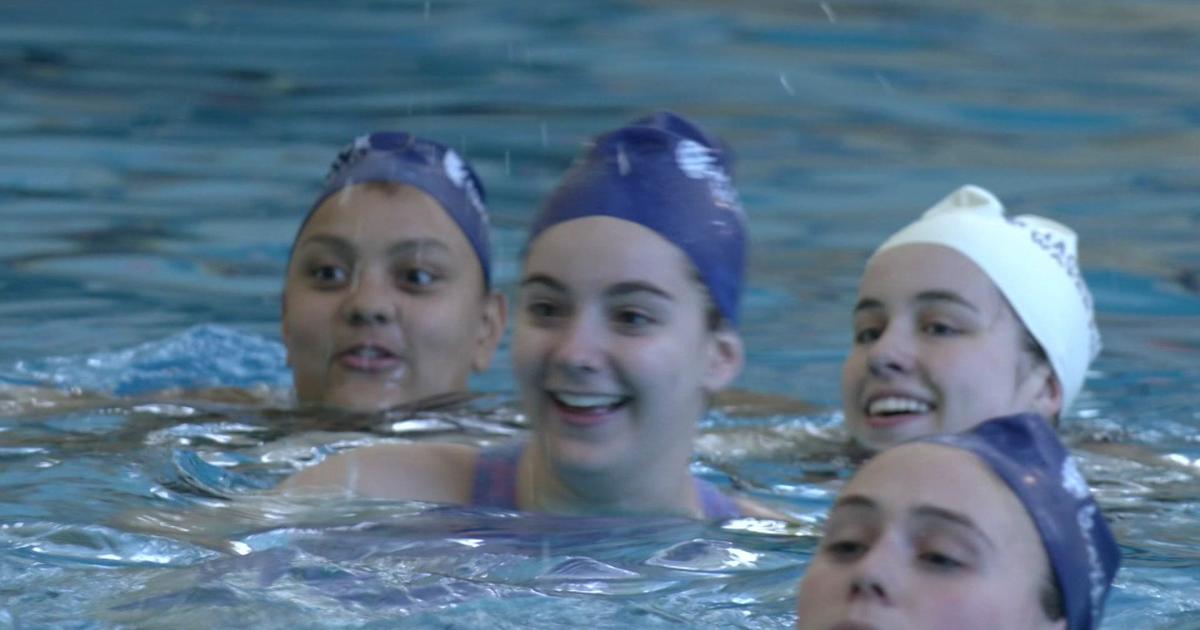Tough Problem: How Best To Evaluate Teachers
ST. PAUL, Minn. (AP) — When Todd Marder changed careers from swim coach to science teacher, he wasn't ready for kindergarteners. But he said things changed when he met with a seasoned teacher who modeled lessons, suggested reading materials and did in-class observations as part of the school district's teacher evaluation process. The kindergarteners, he said, started listening.
"They haven't learned how to sit in a classroom yet and follow a teacher's instructions ... she had me really focus my energy correctly so that kindergarteners would respond," said Marder, 31, now in his second year at St. Paul Music Academy.
The mentoring that Marder found helpful may soon turn up in schools across Minnesota. Even as Gov. Mark Dayton and GOP lawmakers have skirmished this session over teacher performance issues, a group of over 39 teachers, administrators, parents and lawmakers has been quietly developing a new statewide tool for teacher evaluation.
Until recently, state law required only probationary teachers to be evaluated regularly. Some districts evaluated teachers as a requirement of Q Comp, the state program that pays schools when student test scores improve. Otherwise, districts could evaluate tenured teachers, but those reviews varied greatly from school to school in regularity and toughness.
A law passed last year will require all public school teachers to undergo evaluations with a standard tool by the 2014-15 school year.
Traditional evaluations typically involve an administrator watching a teacher work and rating them in areas such as classroom management, communication, engaging students and the lesson itself. In some schools, like Marder's, experienced teachers also perform these observations.
The new evaluation tool will be shaped by several requirements, including aspects of teacher peer review and professional development.
One contentious mandate will require 35 percent of a teacher's evaluation be based on "student growth."
"That is a huge area of challenge," said Rep. Kathy Brynaert, DFL-Mankato, who works with the group. "We have to establish the measures of growth for subject areas that don't have any traditional testing mechanism: physical education, choir, band."
Even for subjects like math and reading where student test scores are available, they won't help in assessing a teacher's performance, said Mary Cathryn Ricker, president of the St. Paul teachers' union and co-chairwoman of the working group.
Brynaert said that many schools track student test scores by grade levels or other groupings, but there is no way to reliably trace a student's test score back to his or her teacher. That problem is compounded when students change teachers frequently, school administrators said.
Steve Dibb, director of school support at the Department of Education, said that teachers at Q Comp schools are measured by end-of-year goals set for students. Several Q Comp teachers have advocated for such an approach with the working group, he said.
The group has also heard about a pilot program in Minneapolis schools that draws complex links between students and each of their teachers to make test scores traceable, said David Heistad, the district's director of research, evaluation and assessment. Heistad, a working group member, said such a program could be more comprehensive statewide if some kind of standardized testing — now given to grades three through eight, 10 and 11— is expanded to cover more grade levels.
Ricker said expanding standardized testing would be time-consuming and expensive. She said classroom tests that teachers already write themselves are a simple, cost-saving solution for measuring effective teaching.
"Teachers give tests on our content area all the time. Band teachers design tests, art teachers design tests," Ricker said. "What larger scale does it need to be measured on? If this is a measure of my strength as a teacher, that is the measure the principal should care about."
Marder, the science teacher, said after a lesson on volume, for example, he'll write an assessment that asks students to calculate the volume of a given shape.
"I do assessments pre- and post- of my own," Marder said. "I'll do exit slips, ongoing assessments, all sorts of things to see if they're understanding the material."
As part of the state evaluation system, schools will have to provide teachers with "professional learning communities" to discuss teaching ideas. That's a longstanding practice at Q Comp schools and has worked well, Dibb said.
"There's time carved out of the day for teachers to meet to talk about students and student work," Dibb said. "We work together ... and find out what's the best way to teach based on student data."
Ricker said the review program that worked for Marder could also inform the statewide tool. St. Paul Public Schools has now extended the program, called PAR — for peer-assisted review — to tenured teachers who want extra help.
Ricker said the new statewide evaluation tool should mimic that aspect because "teachers should have the option of asking for and receiving feedback whenever they want it."
Marder said collaboration with another teacher helped him grow the most in his first year.
"It wasn't just leaving me hanging there, saying 'Fix this,'" Marder said. "It was saying 'Alright, let's work together for how we can fix it.'"
(© Copyright 2012 The Associated Press. All Rights Reserved. This material may not be published, broadcast, rewritten or redistributed.)



